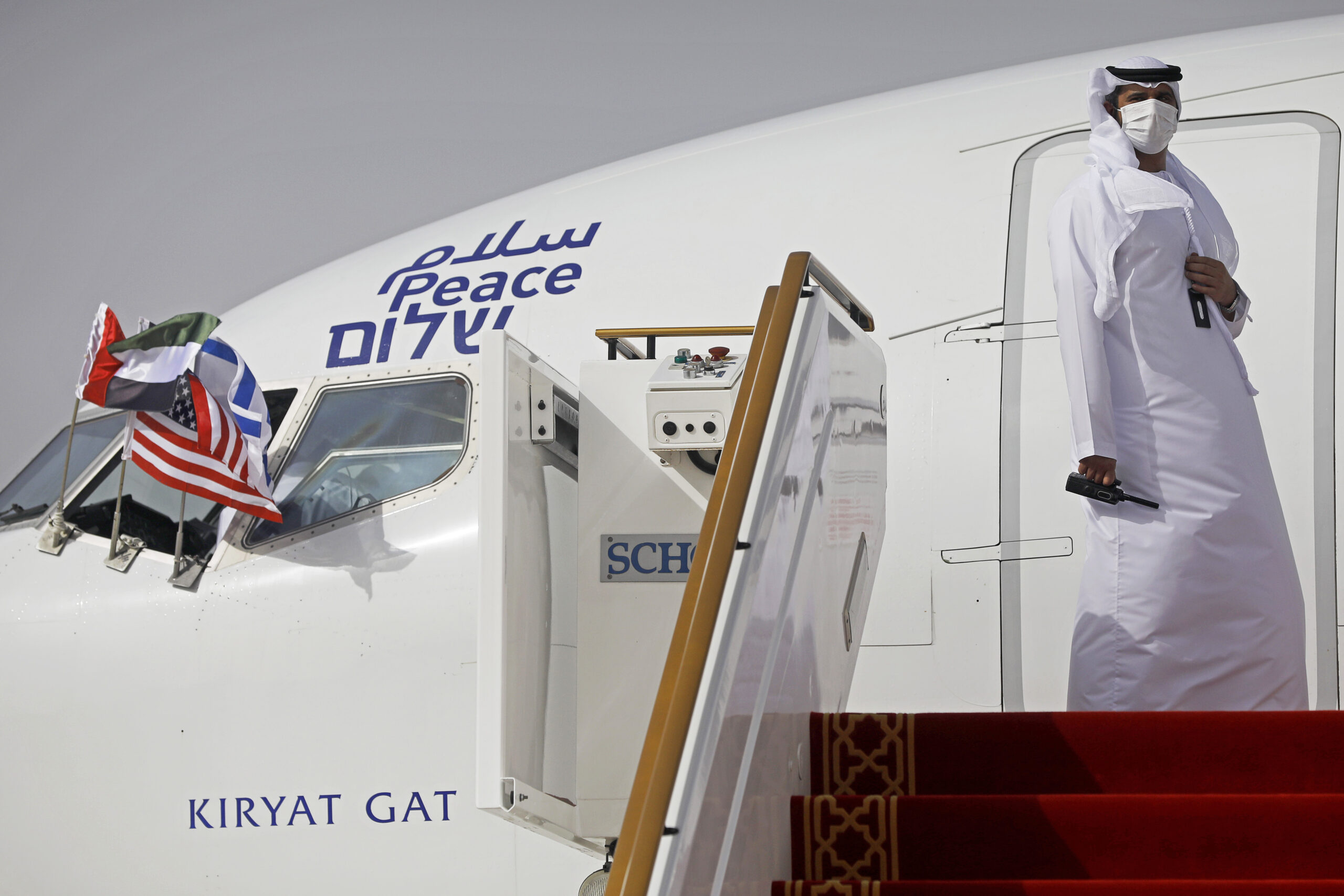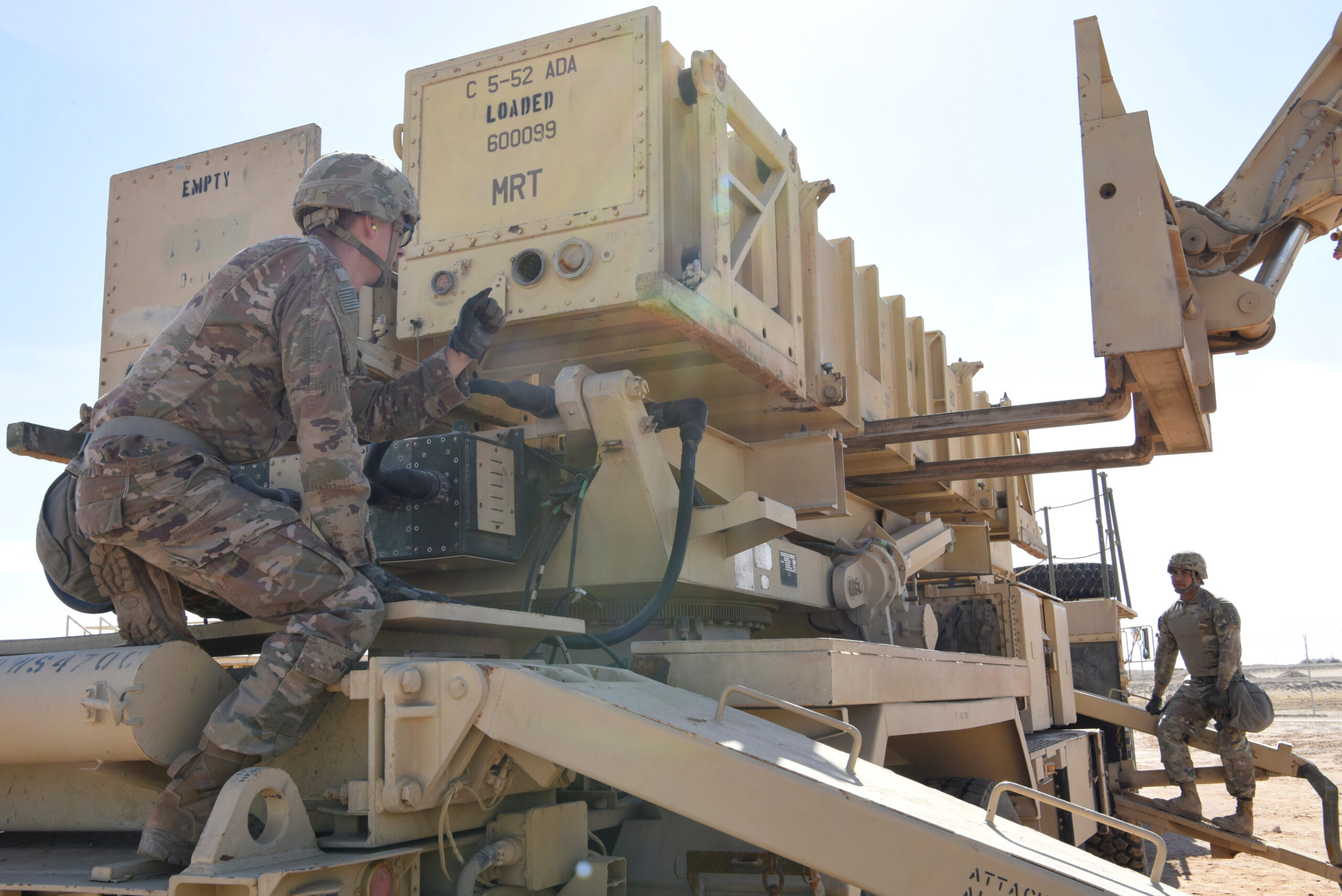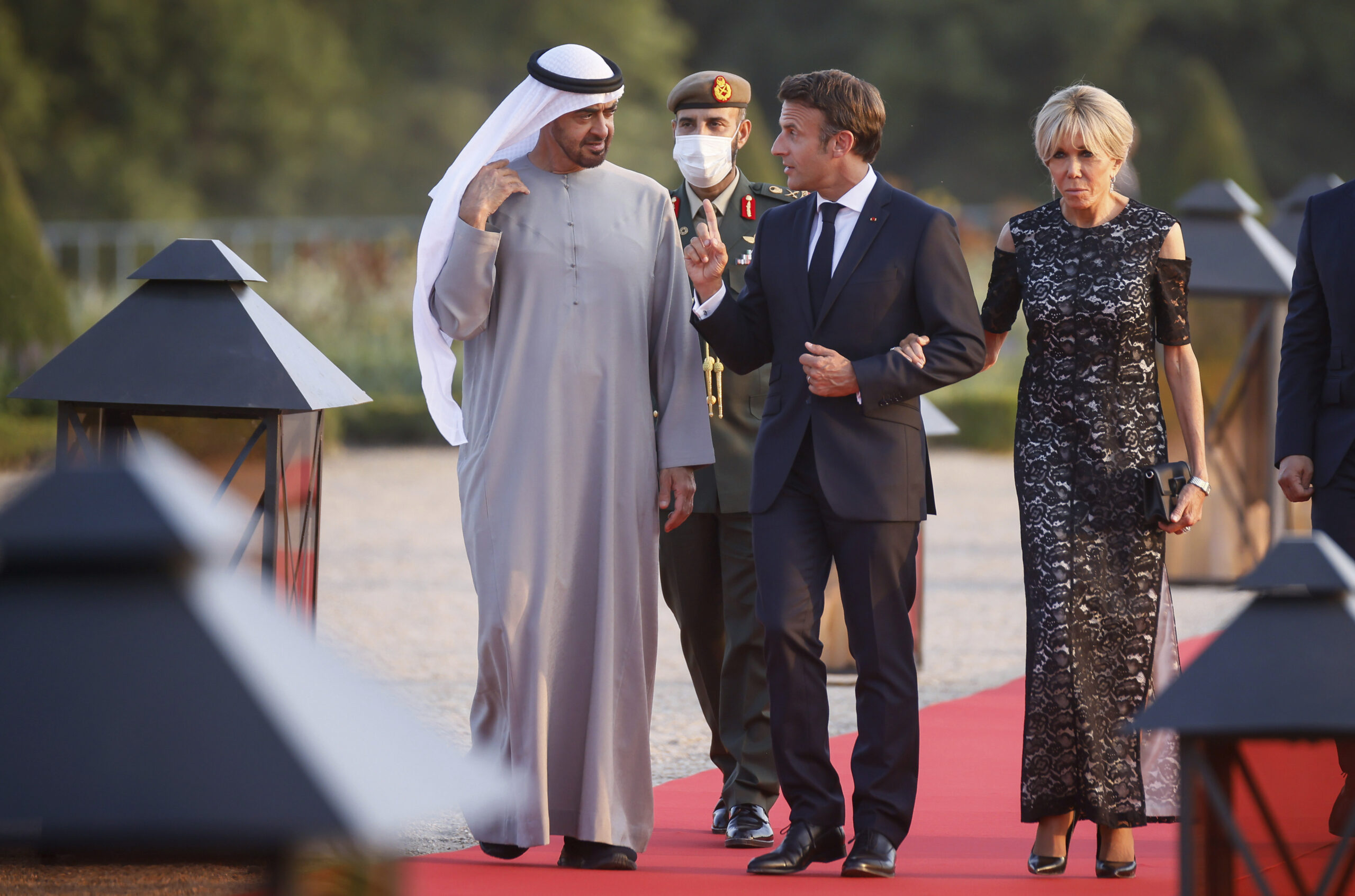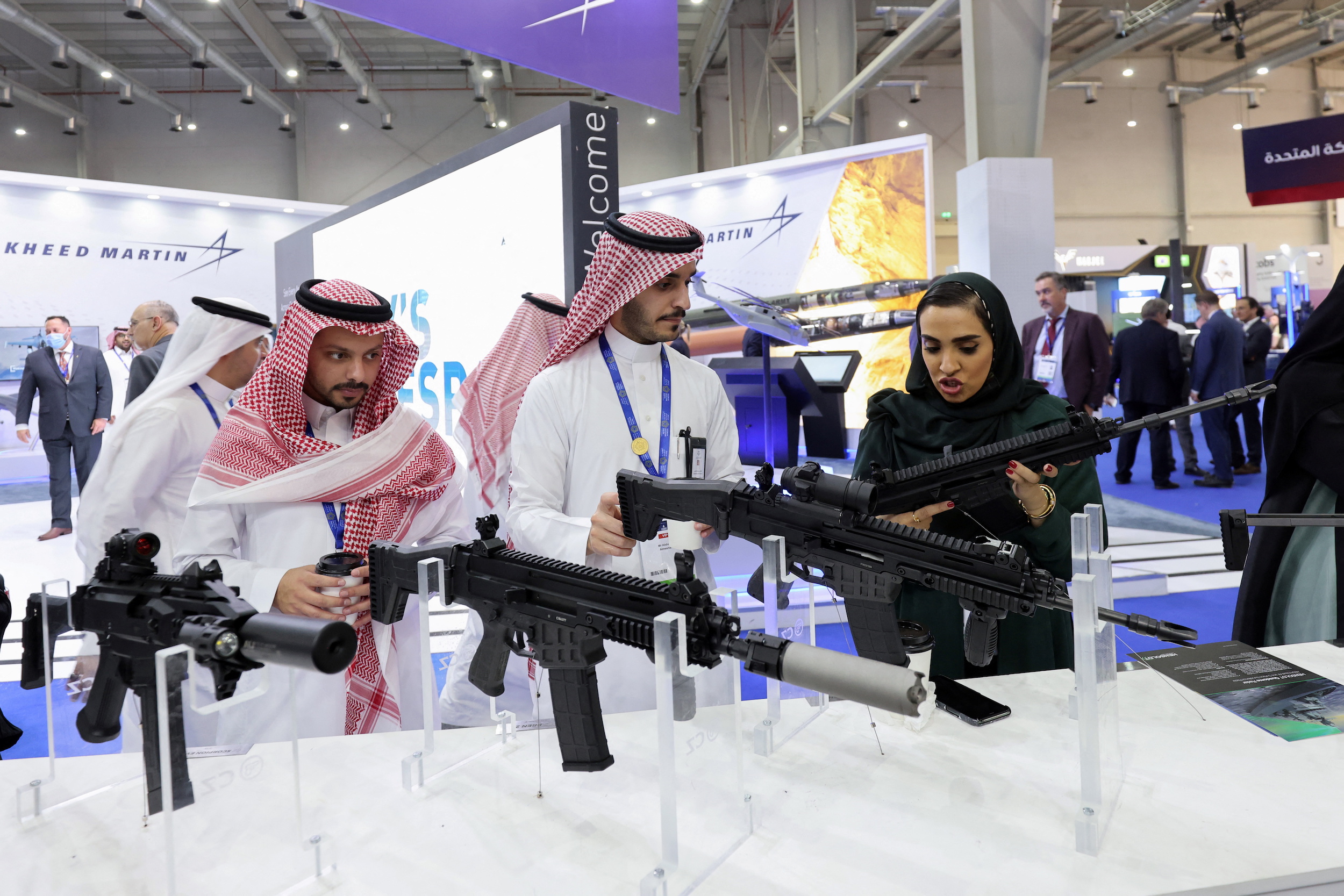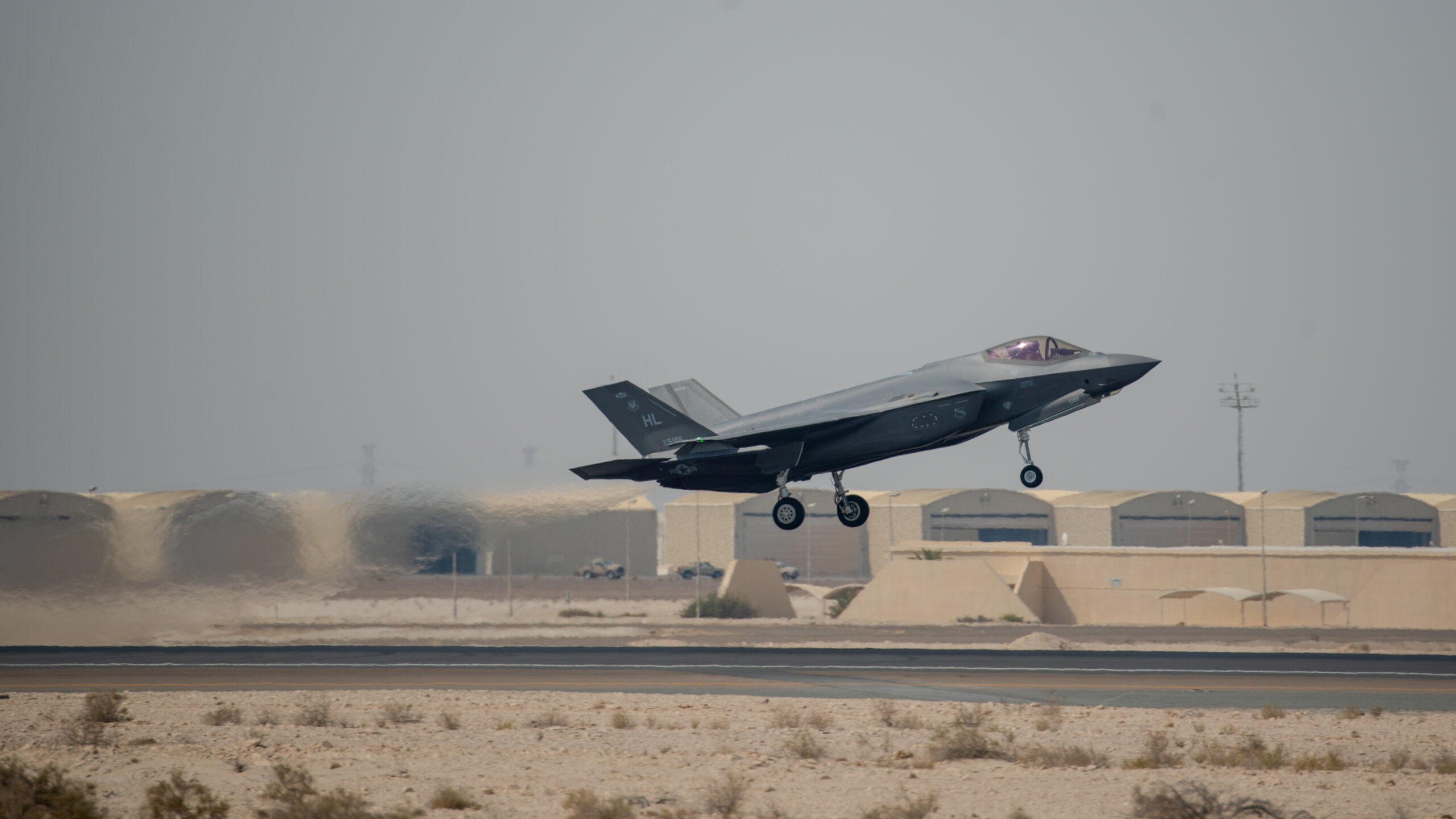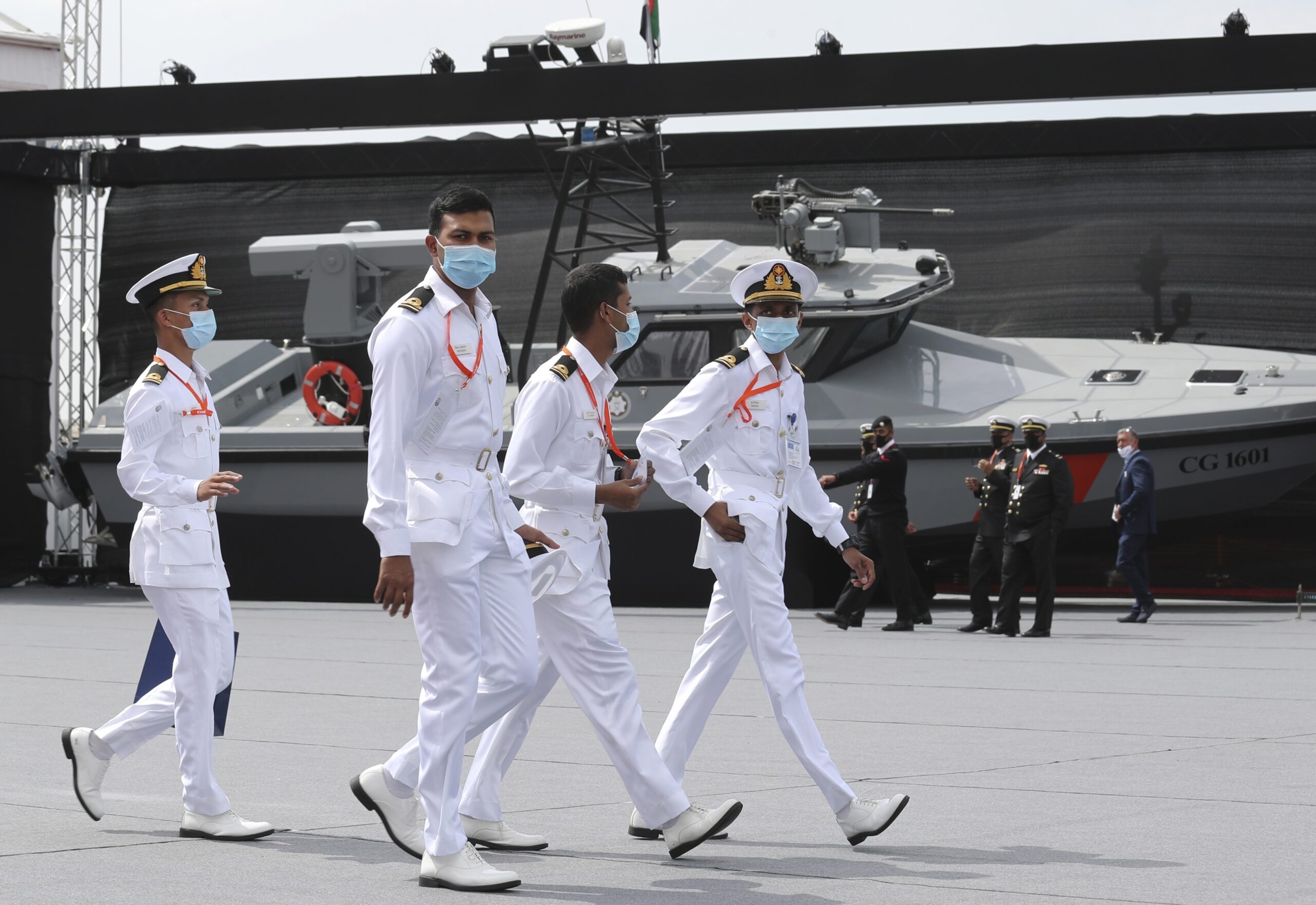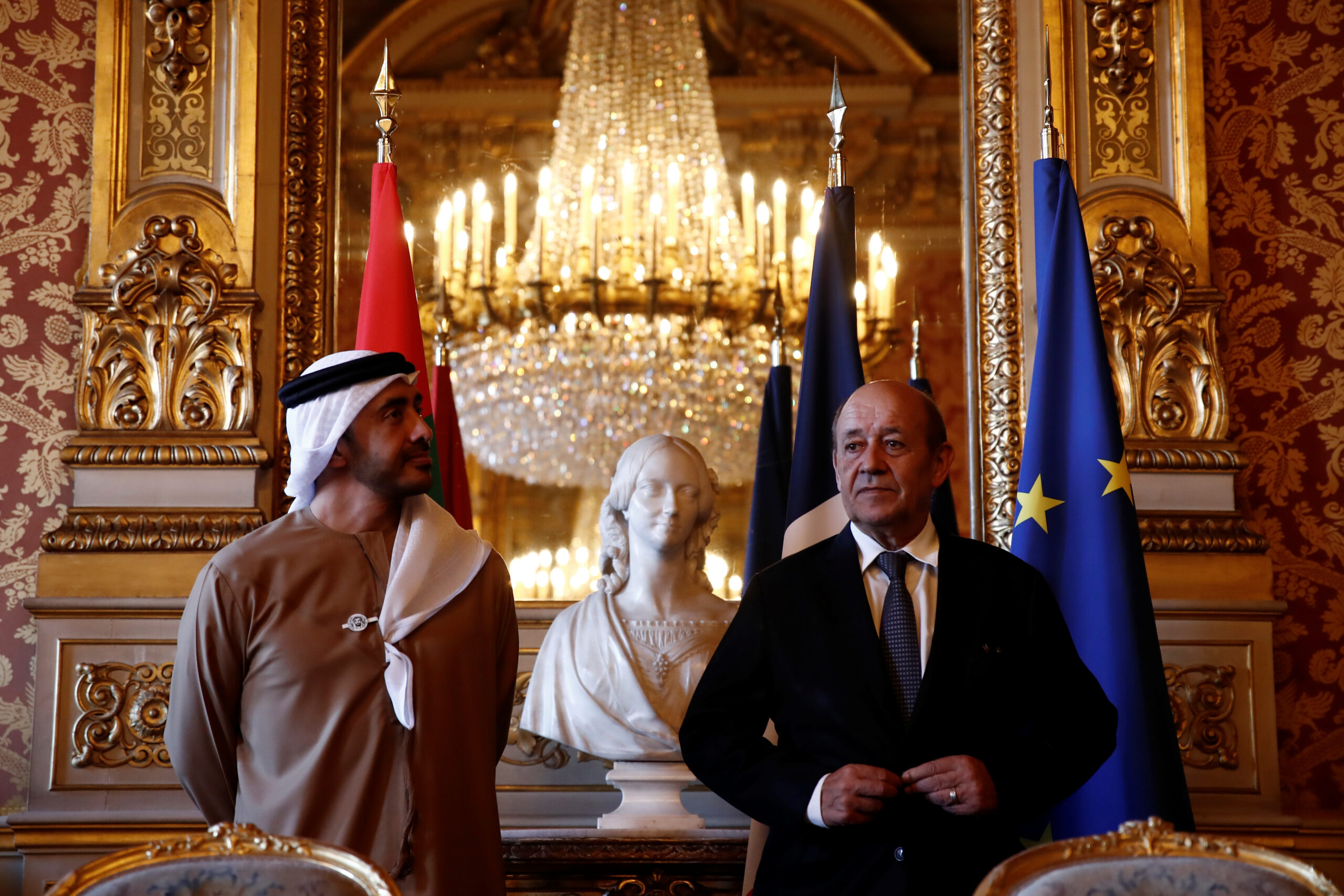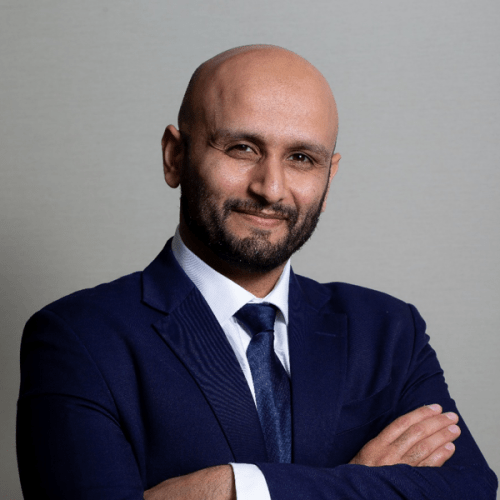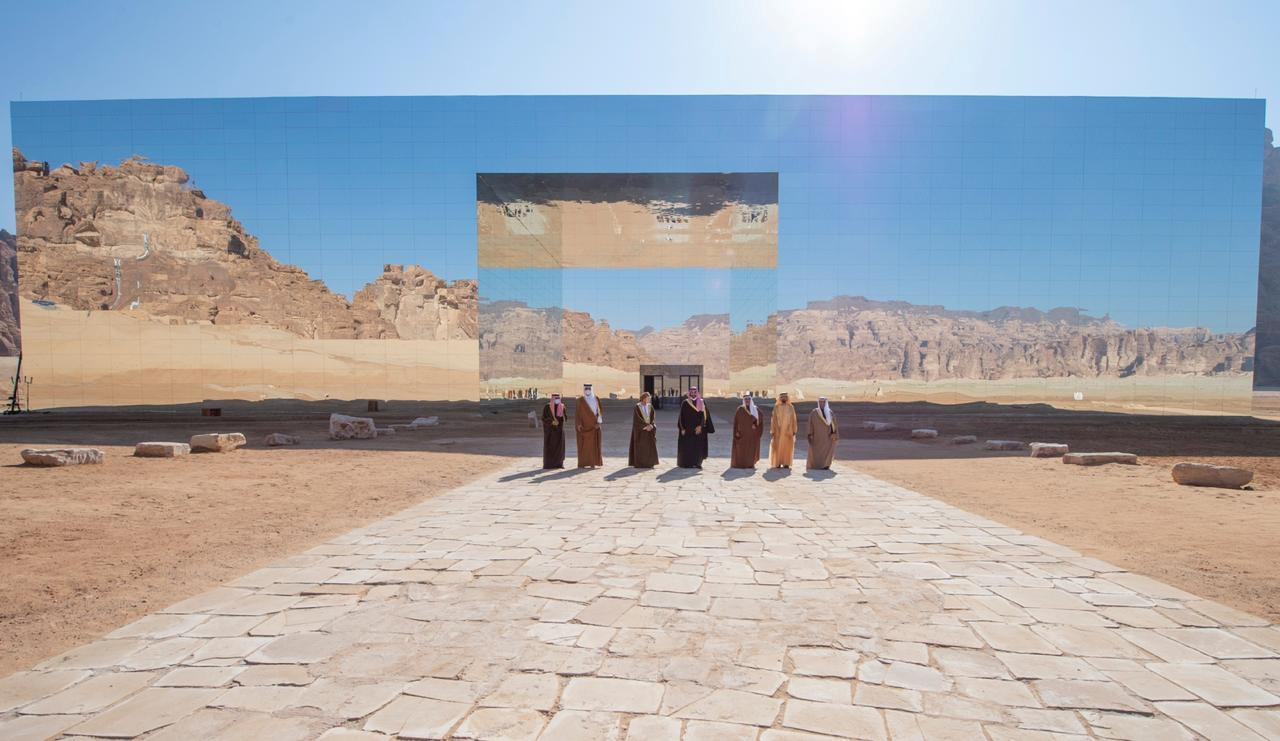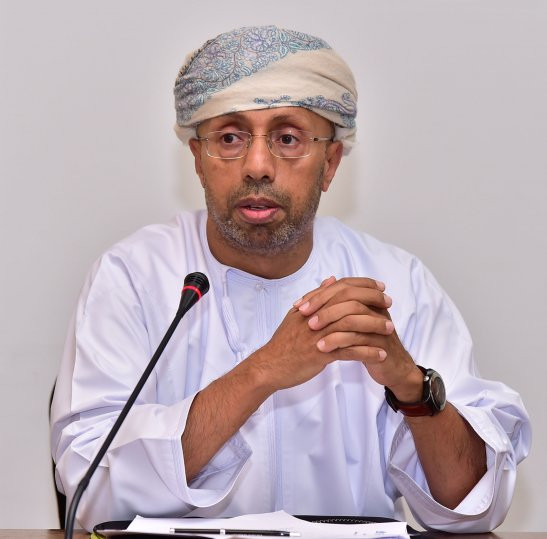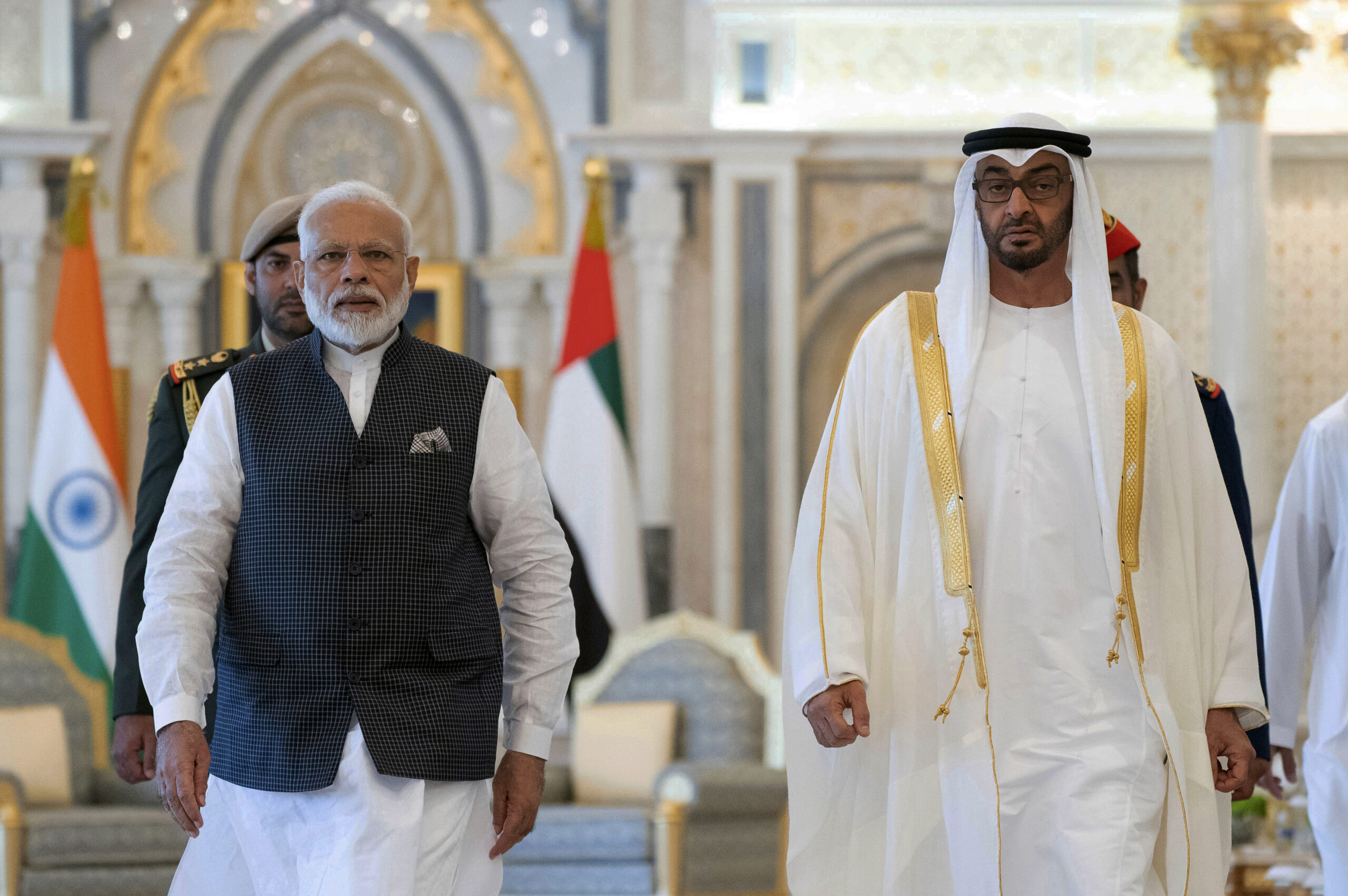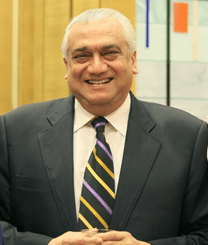What the F-35 Deal Says About U.S.-UAE Relations
The fast tracking of the F-35 sale to the UAE raises questions regarding the incentives motivating all actors involved in the deal.
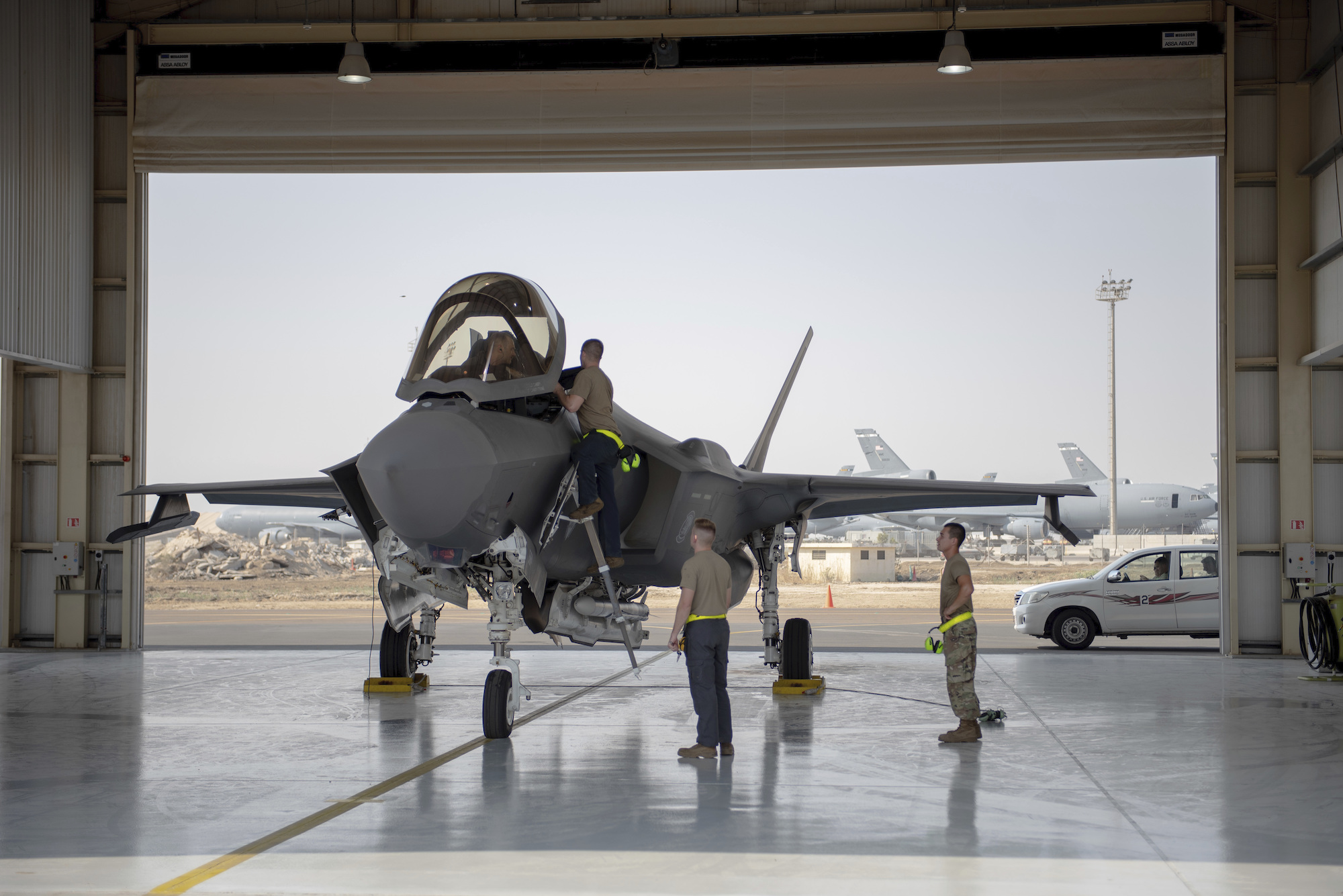
From the moment the United Arab Emirates and Israel announced on August 13 that they would normalize relations, and particularly since they signed the Abraham Accords, much ink has been spilled about the likelihood Abu Dhabi will purchase F-35 fighter jets from the United States. After all, normalization of ties might signal that Israel would no longer consider such a deal a threat to its qualitative military edge. Amid the frantic back and forth on the topic among experts, practitioners, and journalists, Qatar expressed its interest in purchasing the U.S. fighter jet. While one analyst suggested the timing of the request could “torpedo the transaction, not just for the Emiratis but possibly for everybody else in the Gulf Cooperation Council,” that appears not to be the case.
On October 29, negotiations for the UAE F-35 deal were made public as President Donald J. Trump informally notified Congress of the potential sale of up to 50 of the fighter jets to the UAE as part of an arms deal worth $10.4 billion. Such fast tracking of this F-35 sale raises questions regarding the incentives motivating each actor involved in the deal, particularly the UAE. There are many reasons Abu Dhabi might not have moved forward, including the contraction of its defense budget, sparked by the coronavirus pandemic and decline in oil revenue, the divisive political scene in the United States, and a lack of urgent need for these capabilities.
From the perspective of the United States, however, the timing makes a lot of sense. Defense companies need to secure deals and appease their shareholders in the context of a global economic slowdown that is likely to take a high toll on the industry over the next five years. The road ahead appeared particularly rocky for Lockheed Martin, which has faced repeated criticism over the F-35 program and had to slow down deliveries in 2020 as the pandemic disrupted its supply chain.
The announcement also reflects Trump’s ambition to present the American public with “wins” to help his reelection bid. He notified Congress and made the deal public five days before the election, and only two days after bipartisan legislation was presented in the House of Representatives seeking to ensure Israel’s qualitative military edge in the Middle East – a prerequisite before an F-35 sale to the UAE can be finalized.
A week before the notification to Congress, sources suggested that the aim was to have an initial agreement by the UAE’s National Day on December 2, noting that the Trump administration was actively studying how to proceed with the sale while maintaining Israel’s qualitative military edge. This could be done by selling more weapons to Tel Aviv (Prime Minister Benjamin Netanyahu has a wish list), which could explain why Israel isn’t opposing the fast-tracked F-35 deal. Additionally, the deal could even benefit Israeli defense industries.
For the UAE, the tale of the F-35 has echoes of an earlier, similar story with another fighter jet, the Rafale, which the French president and Dassault Aviation were optimistic about selling to the UAE between 2009 and 2011. This deal is still yet to happen almost a decade later (although Abu Dhabi did help fund Egypt’s purchase). As was the case then, most of the discussion surrounding the fighter jet sale has come from the exporting country and not from the UAE, which has barely communicated on the topic, barring a few exceptions, such as UAE Minister of State for Foreign Affairs Anwar Gargash offering a reminder in August that the country had expressed interest in the fifth-generation fighter jets for six years.
The double whammy of the coronavirus pandemic combined with the instability of global oil prices has severely affected the economies of the Gulf Arab states. In July, the International Monetary Fund estimated that the Middle Eastern rentier economies could contract by 7.3%, and uncertainty about the evolution of the pandemic continues to weigh on global oil demand. This contraction is likely to translate into cuts in defense spending and arms procurement, including among Gulf Arab states, based on the low number of arms deals they have announced so far in 2020. Before the announcement of this $10.4 billion deal, the Forum on Arms Trade’s Major Arms Sales Notification Tracker listed roughly $2.2 billion in foreign military sales to the Gulf states in 2020, a fraction of the $14.2 billion registered in 2019. It is thus surprising that the UAE decided to move forward with this major purchase at a time when so much is still up in the air. Making this mega-deal official so close to the U.S. election could be seen as a signal of support for a second Trump term on the part of the UAE, although Abu Dhabi is known to hedge its bets in the international arena.
The most recent UAE arms procurements also suggest that Abu Dhabi had shifted its focus from air power to strengthening its capabilities in maritime security (maritime patrol and preparedness for air-sea battle) as well as electronic warfare and intelligence gathering. For example, in 2019 the UAE purchased two Gowind-2500 frigates from France along with Exocet anti-ship missiles and naval surface-to-air systems from the United States. While not abandoning air-power development, Abu Dhabi has increasingly turned toward new systems, such as armed drones (Wing Loong-2 from China), and domestic production (the B-250 designed and developed in Brazil will be the first military aircraft entirely built in the UAE). It had also just decided to upgrade its existing fleet of fourth-generation fighter jets: In November 2019 the UAE announced the launch of a $929 million upgrade to its Dassault Aviation Mirage 2000-9 fighter jets purchased from France at the turn of the millennium, suggesting no urgent need for additional capabilities.
Given these considerations, what are the incentives for announcing the deal now from the perspective of the UAE?
In one respect, buying 50 of the world’s most advanced fighters ahead of the 50th anniversary of the UAE’s independence in 2021 is coherent with the state’s “militarized nationalism” and its track record of high-tech armament acquisitions for international branding purposes, in addition to building national pride. There is indeed value for Abu Dhabi in being able to claim that the UAE could be the first Middle Eastern country, other than Israel, to be considered a sufficiently reliable and credible military partner by the United States to be allowed to purchase the coveted F-35.
This is enhanced by the current regional backdrop of heightened tensions with Turkey and Qatar. Abu Dhabi may be interested in showing that it can acquire the aircraft Ankara has been denied because of its purchase of the Russian S-400 anti-aircraft system. As for Doha, while the timing of its request to get the F-35s might have been an attempt to highlight its status as a potential “major non-NATO ally” of the United States, it is possible that it also prompted – purposely or not – Abu Dhabi to beat its neighbor to it. The Qatari request was not officially answered by Washington. And while officials in Tel Aviv first shot down the prospect, Israel’s energy minister later said that he had no doubt the Qataris could get it “if they want it and are willing to pay.”
The announcement can also be understood through what it means for U.S.-UAE relations. This deal most certainly enhances the UAE’s status in the international arena, not only because of the prestige the advanced fighter confers to Abu Dhabi but also for the precedent the deal sets in its lack of conditionality when it comes to the UAE’s relations with two global rivals: Russia and China. Turkey’s acquisition of the Russian S-400 system and the two countries’ plan to cooperate on building the S-500 system were the reasons the United States wouldn’t sell the F-35 to Ankara. While Abu Dhabi has not expressed the intention to buy this system from Russia, its defense ties with Moscow are arguably as significant, and the two countries announced in 2017 their intention to work on co-developing a fifth-generation light combat fighter jet – which prompted one analyst to suggest that an F-35 sale to the UAE should be put under the same scrutiny as was the sale to Turkey since it could give Russia access to U.S. technology. The recent cooperation between the UAE and China in artificial intelligence and data gathering has not generated a lot of public criticism either, and for all the energy Trump usually puts in pinning the world’s troubles on Beijing, he has not raised this topic in the context of the F-35 deal.
Former and current policy analysts working for the U.S. government, however, have underlined these concerns. A Congressional Research Service report on Israel’s qualitative military edge and possible U.S. arms sales to the UAE highlights the risk of “compromising U.S. national security if the sale resulted in F-35 technology falling into the hands of China, Russia, or other U.S. adversaries such as Iran.” Additionally, the report notes that the UAE’s role in wars in Yemen and Libya have drawn congressional scrutiny in recent years, as questions were raised about its funneling of weapons to nonstate actors and its use of U.S.-origin fighter jets in deadly airstrikes against the United Nations-recognized Government of National Accord.
Ultimately, if the deal is approved by Congress and goes ahead, it would also represent a major win for Abu Dhabi’s assertive strategy to establish the UAE as a major power on the international stage whose actions are not hindered by the United States. While Washington, especially under the Trump administration, has often leveraged its economic and strategic relations to push other states, including allies, to act in accordance with its interests, it appears less inclined to do so in the case of Abu Dhabi – even as the UAE is making the most of the multipolarization of its international relations, perhaps in ways that might pose challenges to U.S. national interests in the region in the long run.
The views represented herein are the author's or speaker's own and do not necessarily reflect the views of AGSI, its staff, or its board of directors.


